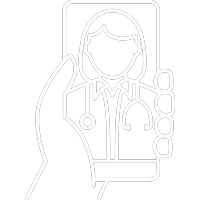Experiencing sudden chest pain or sleepless nights due to an earache can be daunting, and it’s natural to feel unsure whether to visit an emergency room (ER) or an urgent care center. This confusion is common, and it’s essential to understand the differences between the two facilities.
To make an informed decision, learning about the differences between an ER and urgent care is important. Continue reading the article below to gain a better understanding.
The Differences Between ER and Urgent Care
What is an ER?

An emergency room (ER), or an emergency department (ED), is a medical facility designed to provide immediate and urgent care to patients with acute medical conditions or injuries requiring close attention.
ER is available 24 hours a day, 365 days a year, and fully staffed by specially trained medical professionals, such as emergency physicians, and nurses that are equipped with a wide range of medical equipment and supplies to save lives in the immediate.
Patients are typically triaged upon arrival and receive immediate attention. Patients may be treated and released, admitted to the hospital for further care, or transferred to another facility if necessary.
What is an Urgent Care Center?

An urgent care center is a medical facility that provides walk-in medical care for patients with non-life-threatening illnesses. Typically, an urgent is a community medical facility outside a traditional hospital-based or emergency room (ER).
Most urgent care centers are open 7 days a week and available outside of regular business hours. Some centers are even open on holidays. This makes them a convenient option, especially when primary clinics or physician offices may be closed. Similar to an ER, an urgent care center is staffed by a team of medical professionals trained to diagnose and treat a wide range of non-life threatening medical conditions, such as physicians, physician assistants, nurses, and other support staff.
Examples of What You Would Go to ER and Urgent Care For
Deciding whether to go to an ER or an urgent care center depends on the severity of your medical condition.
According to UChicago Medicine, here are some examples of situations where you should go to an emergency room:
- Chest pain or pressure: this could be a sign of a heart attack or other cardiac condition. Do not think twice. Go to the ER immediately.
- Difficulty breathing: this could be a sign of a serious respiratory condition.
- Severe or persistent abdominal pain: this could be a sign of a serious medical condition, including appendicitis (right lower abdominal pain), kidney stones, and other abdominal conditions.
- Severe headache: if this condition is accompanied by a loss of consciousness, nausea, or vomiting, increased intracranial pressure is suspected.
On the other hand, here are some examples of situations where you might attend an urgent care center:
- Minor injuries include sprains, strains, or small cuts requiring stitches.
- Common respiratory tract infections include cold, flu, and strep throat.
- Eye infections or minor injuries.
- Minor burns or sunburns.
- Urinary tract infections or sexually transmitted diseases (STDs).
- Mild allergic reactions, such as rashes, hives, or mild swelling.
- Minor skin conditions, such as acne, dermatitis, or eczema.
- Mild asthma attacks.
The Services Midlands Urgent Care Offers
Midlands Urgent Care fills the gap between an ER and doctor’s offices by offering immediate care for urgent non-life threatening conditions 7 days a week with no appointment needed.

Our services include:
- Minor illnesses treatment
- Injuries and burns treatment
- Lab and drug testing
- Sports physical therapy
- Respiratory tract infections
- X-rays
- STI/STD and UTI treatment.
If you would like to like to learn more about our services in-depth, please click here.
End Note
An ER is a medical facility designed to provide immediate care to patients with life-threatening conditions or injuries that require prompt attention. In contrast, an urgent care center is a medical facility that offers walk-in medical care for patients with non-life-threatening illnesses that need to be addressed in a timely manner.
It’s important to note that urgent care centers are not a substitute for emergency care as they don’t have the same equipment or trained staff as an ER. However, they are a reliable option for minor injuries or illnesses that cannot wait until tomorrow.
Our Omaha-based medical professionals at Midlands Family Urgent Care provide a variety of healthcare services ranging from sick visits to walk-in sports physicals. To learn more about Midlands Family Urgent Care, please contact us today!
Disclaimer: The information presented in this blog post is for educational purposes only and should not be used as a substitute for professional medical advice, diagnosis, or treatment. Any reliance you place on the information presented in this blog post is therefore strictly at your own risk.
Always seek the advice of your physician or other qualified healthcare providers with any questions you have regarding a medical condition or treatment. The author and publisher of this blog post make no representation or warranties of any kind, express or implied, about the completeness, accuracy, reliability, suitability, or availability with respect to the information contained in this blog post for any purpose.
In no event will the author or publisher be liable for any loss or damage including without limitation, indirect or consequential loss or damage, or any loss or damage whatsoever arising from the use of or reliance on the information presented in this blog post.



 FIND LOCATION
FIND LOCATION
 WEIGHT LOSS
WEIGHT LOSS
 TELEMEDICINE
TELEMEDICINE

